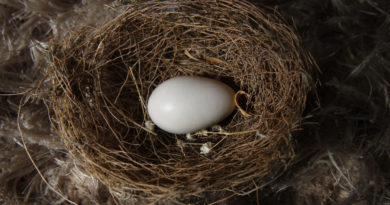Your Low Self-Esteem Isn’t A Secret
Your actions reveal your sense of self worth and you’re being treated accordingly. Since you set your own value, YOU are attracting the treatment – or mistreatment – you receive.
“Self-esteem is as important to our well-being as legs are to a table. It is essential for physical and mental health and for happiness.” Louise Hart
You may have surrendered to a life with a low self-esteem. You may be living in a state of resentment. You may be feeling that other people make your life miserable. You may be thinking: “People are unfair. People take advantage of me. People don’t respect me.” You may believe that you would be happy, successful and fulfilled if others didn’t constantly impose on you and your time…
“Our dependency makes slaves out of us, especially if this dependency is a dependency of our self-esteem. If you need encouragement, praise, pats on the back from everybody, then you make everybody your judge.” Fritz Perls
That’s one way of looking at life with a low self-esteem: blaming others. But there is a different way to look at it.
Imagine that you – or someone you love – is about to have a life-saving heart surgery. The cardiac surgeon comes in for a brief consultation before the surgery. She is exceedingly polite, apologetic and insecure. Would you trust her with yours or a loved one’s life?… Of course, not! The cardiologist demonstrated such a low level of self-esteem that you don’t find her trustworthy. You didn’t come in prejudiced. You decide to change doctors based on the impression she’s made on you.
The individual’s attitude, actions and behaviors evoke specific reactions of others. WE are the initiators of the chain of reactions and events. Click To Tweet
To be even more specific, our self-esteem elicits reactions that – depending on our self-esteem’s level – can be either beneficial or harmful to us.
The unfair, contemptuous and / or exploitative actions of others are often their reactions to our behavior. Changing the attitude or behavior that elicits unpleasant reactions will prevent most of them.
Long story short, our behavior shaped by self-esteem determines how we conduct ourselves, how others perceive and, consequently, treat us. Others don’t determine how we are treated, what our opportunities are or the quality of our relationships: knowingly or unknowingly, we do.
Jean-Paul Sartre said: “Hell is other people”. In this particular case however, it isn’t true. You may not be a victim of other people, after all. You are a victim of your low self-esteem.
When it seems that everybody has ganged up on you, it makes sense to stop and ask yourself why. It is unlikely that everybody is bad and wrong. There is a possibility that you, the victim – knowingly or unknowingly – elicit the worst in people. YOU have the power to stop it! You can change the power differential. You can develop healthy self-esteem, project self-confidence; attract people and opportunities; elicit trust, good faith and support. It’s the weak people that look for excuses and blame others. (That’s a classic example of putting a cart before the horse.) Good people – like you! – accept responsibility for their misfortunes and work to reverse them.
“Self-esteem is made up primarily of two things: feeling lovable and feeling capable. Lovable means I feel people want to be with me. They invite me to parties; they affirm I have the qualities necessary to be included. Feeling capable is knowing that I can produce a result. It’s knowing I can handle anything that life hands me.” Jack Canfield
Building healthy self-esteem isn’t like adding yet another skill to your existing skillset. It doesn’t change or add to who you are. It changes the power differential in your favor and opens new doors. Building healthy self-esteem requires some effort but it’s an investment that will pay dividends for the rest of your life.
P.S. Low self esteem (like excessive body weight) plagues many. It tends to be misunderstood. As much as there are many ways to improve self esteem, most of them aim at modifying behavior. What if the behavior dictated by low self esteem (or overeating) is a well-established adaptation to a false belief?…
How could that be? We act on the information we accepted and adapted to. To a degree, our behaviors are automatic: we shiver when we’re cold, we don’t choose – or plan – to shiver. It just happens. It’s our body’s reaction to cold. Our displays of low self esteem – in some cases – come from the same source: the belief and / or information we accepted and adapted to.
How to solve the problem? Identify the origin of your feelings of low self worth (when was the first time you felt worthless?); heal old wounds and synchronize your beliefs with facts. Once you act on correct information or belief, you may – or may not – need to learn behavioral strategies. After all, no one taught you to shiver in the cold, right?…
Having healthy self-esteem will change your life. Most people have a healthy self-esteem. If you do too, you’ll control your life; you’ll be equal among equals and treated like an equal, not someone who is less than.




